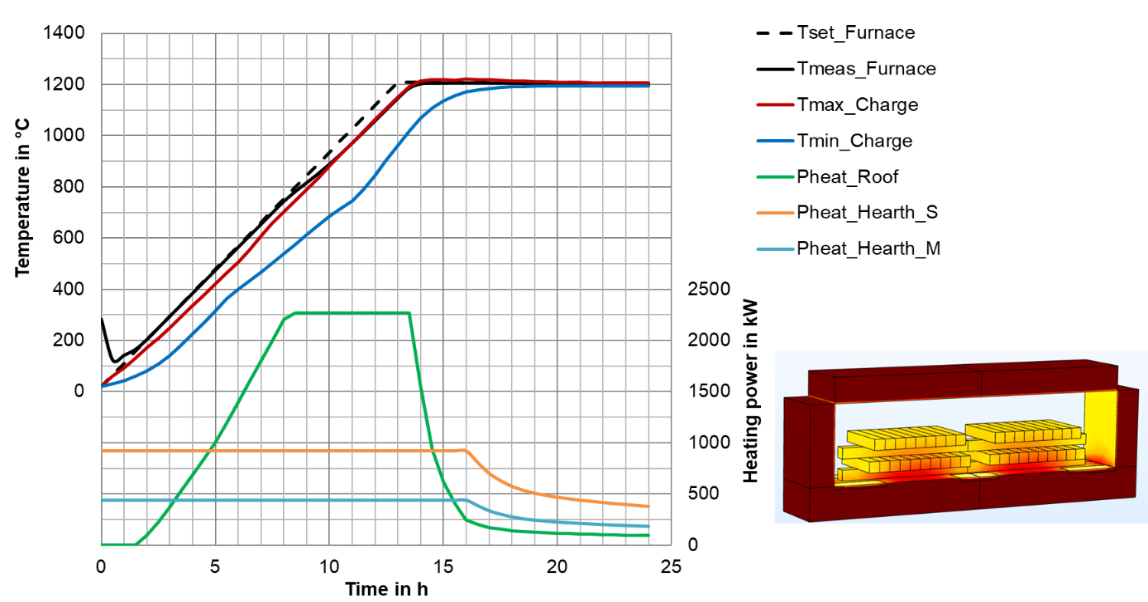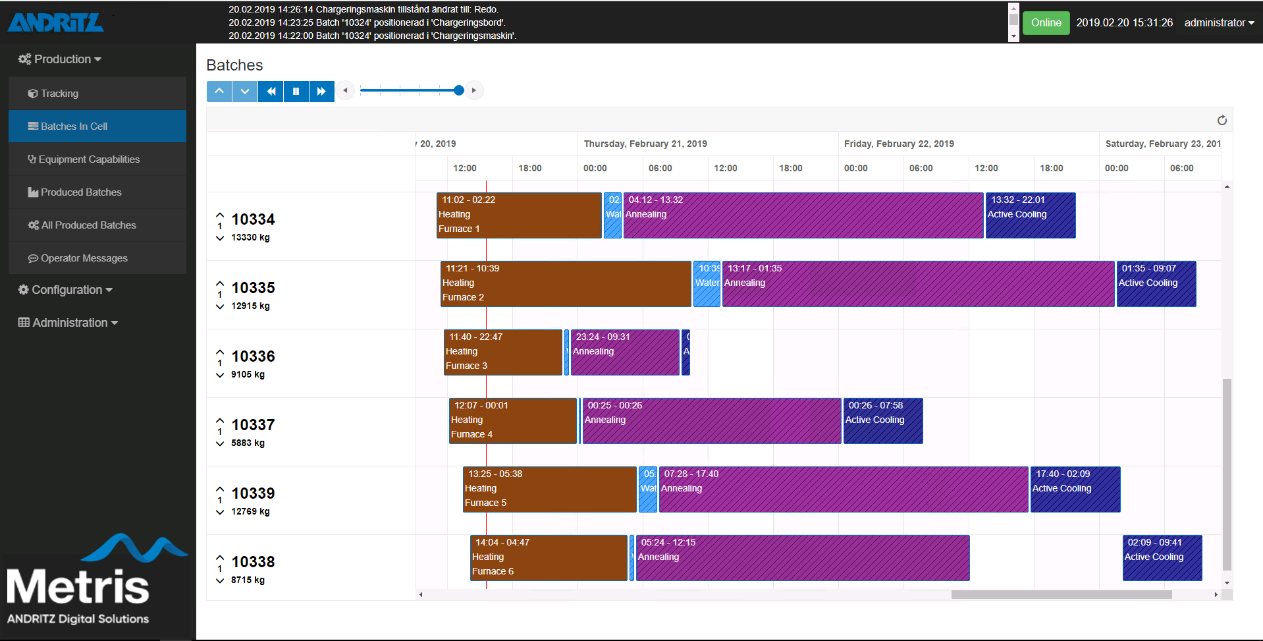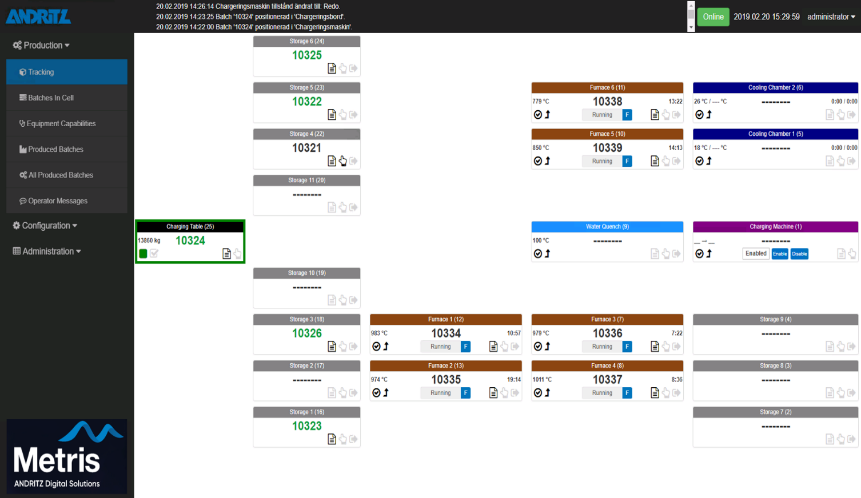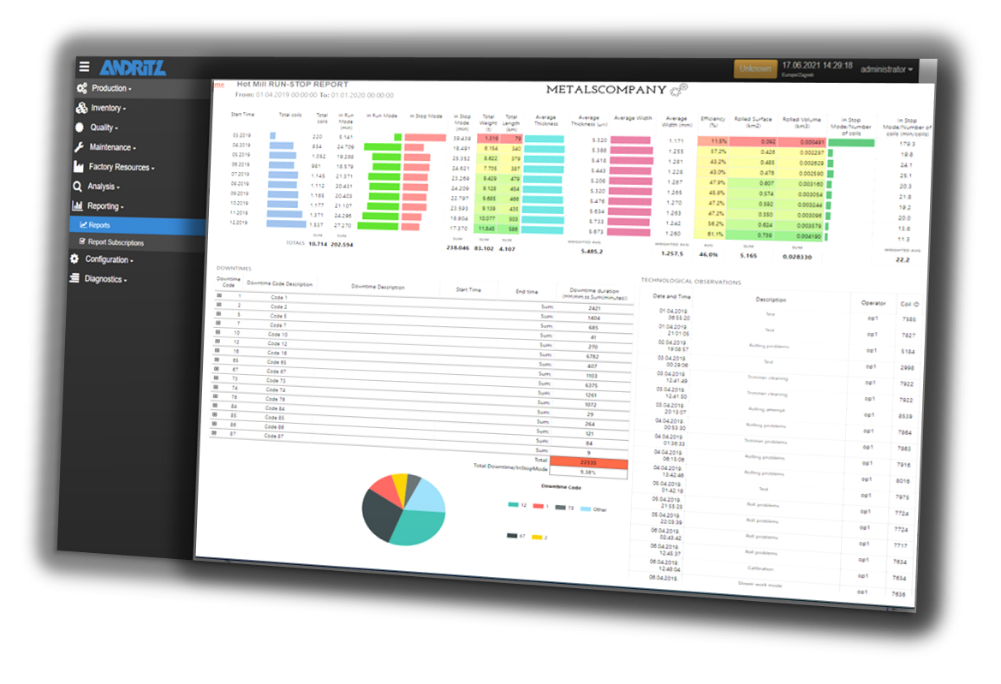Features of Intelligent Plant Floor Management
- Heat treatment models
- Intelligent scheduling
- Automated plants operation
- Dynamic work orders
- Track & Trace (OEE, KPI, WIP, Inventory…)
- Quality Assurance (reporting)
- Reporting in real-time and on demand (quality, production, performance, maintenance, energy, CO2 footprint…)
- Analysis (historical data on production, quality, performance…)
- Mobile solutions (Tablets, Smart Phones, remote access…)











